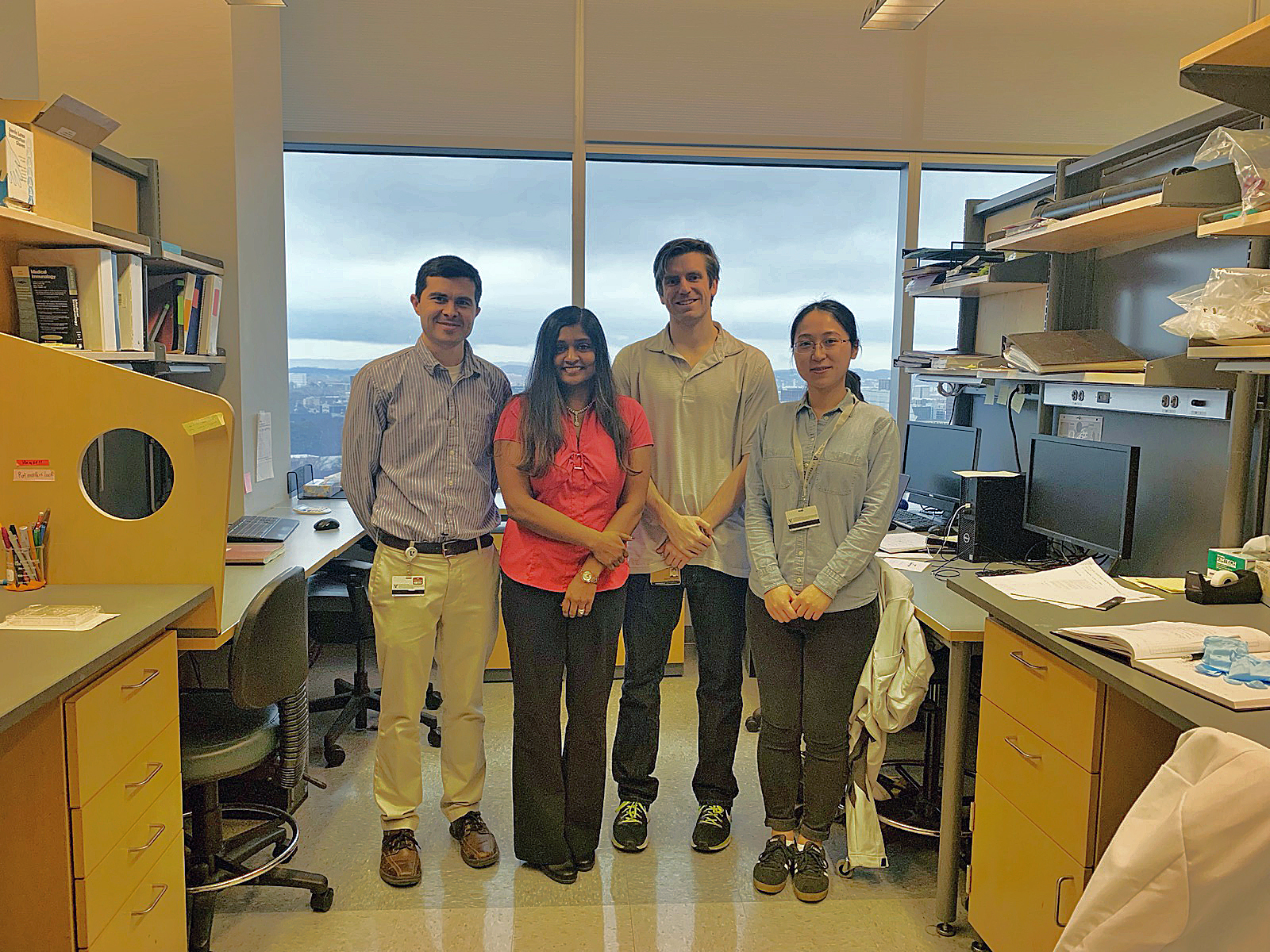Dr. Meena Madhur is an Assistant Professor of Medicine and Molecular Physiology and Biophysics. She is also an Associate Director of VI4.
Her research focuses on how T cells and T cell-derived cytokines promote hypertension and renal/vascular dysfunction. Her lab was the first to demonstrate a critical role for the lymphocyte adaptor molecule LNK in hypertension and aortic disease. They also defined mechanisms by which the pro-inflammatory cytokine interleukin 17A (IL-17A) contributes to hypertension and renal sodium retention.
We visited the lab on a dreary February morning. Perched high above the medical center in MRBIV, where you can gaze down at all of campus and downtown Nashville beyond, it's a fantastic setting for the important research being conducted there. We started by greeting everyone and taking a few pictures, then we sat down to talk. We asked, "What’s going on in your lab that we should get excited about?"
She explained "We're using single cell approaches in human blood to perform deep immunophenotyping of human hypertension. We've also uncovered a new critical role for a subset of T cells called T follicular helper cells in hypertension."
Our spotlight interview continued from there.

Madhur Lab: Matthew Alexander, Dr. Meena Madhur, Duncan Smart, Yuhan Chen (visiting MSTP student from China), (not picured: Bethany Dale).
What is something that makes your lab team or your research program really special?
The collaborative nature and the fact that we all work together as a team.
What is one topic in your field that you are excited about right now?
Using immunomodulatory agents as an adjunct treatment for hypertension.
Are there any trends in your field that you think people should be aware of (good or bad)? What topics do you think we will be talking about in 5 years? 10 years?
1. The ability to perform multidimensional flow or mass cytometry, particularly combined with single-cell sequencing and T cell or B cell receptor sequencing, is highlighting the complexity of the immune system and the fact that perhaps no 2 immune cells are the same. Our artificial classification of T cells into 5 major subsets is oversimplified. I think we are starting to understand the true diversity and plasticity of these cells.
2. It is really exciting to me that we uncovering a whole new role of the immune system in homeostatic functions like blood pressure regulation, renal salt and water handling, and vascular function. In addition, aberrant immune activation is a hallmark of metabolic diseases such as obesity, diabetes, and hypertension. Thus, the immune system has this whole other function independent of fighting pathogens or cancer.
What do you think has changed since you've gotten into your field?
A greater appreciation of the role of the immune system in hypertension and hypertensive end-organ damage. Ten years ago, most people didn't realize that hypertension is an inflammatory disease.
What's your favorite thing about working at VI4/Vanderbilt?
The collegiality, willingness to collaborate and form multi-disciplinary teams, and shared research interests.
How/When did you know wanted to become a scientist?
12th grade. I attended the North Carolina School of Science and Mathematics and had the opportunity to spend a few hours a week in a research lab at Duke University. That is when I realized I loved science.
What advice you'd give to a new graduate student?
There will be many setbacks and rejections in your future but don't forget why you started down this path.
Duncan Smart,
Molecular Physiology & Biophysics Graduate Student

Madhur Lab Christmas Party 2016: Bethany Dale, Allison Norlander (graduate student who graduated in 2017), me, Fanny Laroumanie (post-doc fellow who finished in August 2018).
Matthew Alexander, M.D., Ph.D.
4th Year Research Fellow
